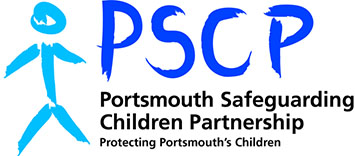Whistle blowing and allegation management
You’re a whistle blower if you’re a worker (in a paid or voluntary position) and you report certain types of wrongdoing. This will usually be something you’ve seen at work – though not always. The wrongdoing you disclose must be in the public interest, this means it must affect others.
Whistleblowing occurs when a person raises a concern about dangerous, illegal activity or any wrong doing within their organisation, e.g.
- potentially vital information about health and safety risks
- possible fraud
- harm of children or vulnerable adults
- concern worried about someone’s behaviour
As a whistle blower you’re protected by law – you should not be treated unfairly or lose your job because you ‘blow the whistle’.
All organisations working with children should be responsive to concerns raised by staff about another person’s practice or behaviour. It is important that all professionals have the confidence to come forward to speak or act if they are unhappy with anything and that they will be supported by the organisation to do this.
It is essential these issues are addressed immediately, so, ‘blowing the whistle’ as early as possible is important in order to prevent further harm being done.
Each agency should have their own policy on whistleblowing that you can refer to (you can still report your concern to them even if they don’t have a policy).
There are other options if you do not want to report your concern to your employer, for example you can get legal advice from a lawyer, or tell a prescribed person or body. If you tell a prescribed person or body, it must be one that deals with the issue you’re raising, for example a disclosure about wrongdoing in a nursery can be made to Ofsted.
If you believe that a reported allegation or concern is not being dealt with appropriately by your organisation, then you should report the matter to the LADO.
This is a technical term based on the definition provided by Working Together to Safeguard Children 2018. An allegation may relate to a person who works with children (in a paid or voluntary position) who has:
- behaved in a way that has harmed a child, or may have harmed a child
- possibly committed a criminal offence against or related to a child
- behaved towards a child or children in a way that indicates they may pose a risk of harm to children
- behaved or may have behaved in a way that indicates they may not be suitable to work with children
An allegation does not need to be formally made or explicitly described for this process to be followed
Employers, school governors, trustees and voluntary organisations should ensure that they have clear policies in place setting out the process, including timescales for investigation and what support and advice will be available to individuals against whom allegations have been made.
Any allegation against people who work with children (in either a paid or voluntary capacity) should be reported immediately to a senior manager within the organisation or agency.
The Local Authority Designated Officer (LADO) should also be informed within one working day of all allegations that come to an employer’s attention or that are made directly to the police.
If the allegation meets the criteria as described above the manager should download and complete this referral form which has been designed to help all agencies working with children record and refer information to the LADO. This must be done within one working day of becoming aware.
If you wish to discuss a matter with the LADO please contact 02392 882500 or email lado@portsmouthcc.gov.uk
Worried about a child – If you are concerned that a child or young person has suffered harm, neglect or abuse, please contact Portsmouth Multi Agency Safeguarding Hub (MASH)
If a child is at immediate risk of harm, call the Police on 999
- HIPS Safeguarding Children Procedures – Allegations against staff and volunteers
- HIPS Safeguarding Children Procedures – Whistleblowing
- NSPCC learning resource for managing allegation against or concerns about people who work or volunteer with children
